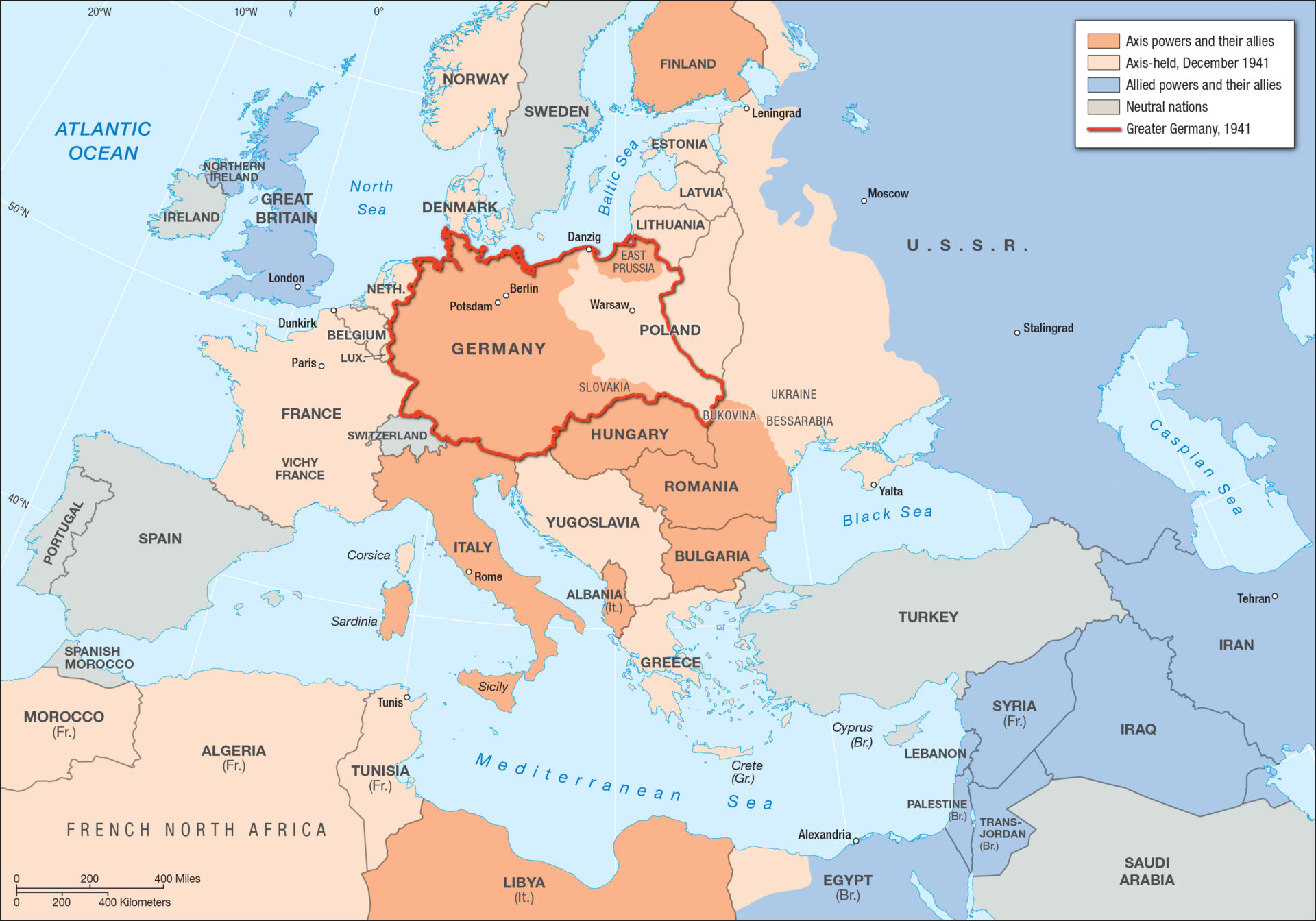In eastern Europe, the new first secretary to the Soviet Communist party, Nikita Khrushchev (1894-1971), sought to heal the breach with Tito. In May 1955 he went in person to Belgrade and publicly apologized for the quarrel.
Relations between Tito and Moscow improved, although the Yugoslays never abandoned their ties to the West. Khrushchev even went so far as to declare that many prominent victims of the Titoist purges had been executed wrongly. But in making these admissions Khrushchev opened the door to new troubles.
In 1956 Khrushchev denounced Stalin and admitted to many past injustices in the Soviet Union. This proved far too strong a brew for the European satellites. Anticommunist riots by workers in Poznan, Poland, in June 1956 were followed by severe upheavals elsewhere in Poland. The uprising was conducted by one wing of the Communist party, that led by Wladislaw Gomulka (1905-1982). Not even the presence in Warsaw of Khrushchev himself prevented Gomulka’s rise to power, although at one moment the Soviets seem to have contemplated imposing their will by force. Yet because the new government in Poland was still communist, they allowed it to remain in power until 1970.
In Hungary, however, the upheaval went farther. Starting as an anti-Stalinist movement within the Communist party, the Hungarian disturbance at first brought Imre Nagy (1895-1958) into office as premier.
But popular hatred for communism and for the Soviets got out of hand, and young men and women took up arms in Budapest in the hope of ousting the communists and taking Hungary out of the Soviet sphere. When Hungary denounced the Warsaw Pact, Khrushchev ordered full-fledged military action. In November 1956 Soviet tanks and troops swept back into Budapest and put down the revolution in blood and fire. A puppet government was installed and more than 150,000 Hungarian refugees fled to the West.
The Hungarian uprising demonstrated that Khrushchev was unwilling to permit much deviation from the Soviet line, and that he would use military power when that line was crossed. Perhaps most important, it demonstrated to other satellite states that they could not count on aid from the West in the face of Soviet resistance. The effect was to stabilize the Iron Curtain, putting an end to major probes across it by either side.
All the eastern European satellites had been bound together in the Council for Mutual Economic Aid (Comecon) established in 1949, which took measures to standardize machinery and coordinate economic policies and issued blasts against western European efforts at economic cooperation through the Common Market. Yugoslavia never joined Comecon, and after 1958 it was not invited to send observers.
In 1958-1959 Comecon called for a specialization plan in which the more developed countries would concentrate on heavy industry, and Romania in particular on the production of raw materials (chiefly food and oil). The Romanian government protested, pointing to its already considerable achievement in heavy industry.
Thus the Romanians, like the Yugoslays, assumed a more independent position within the communist bloc. They increased their trade with the non-communist world and remained neutral in the growing Soviet-Chinese quarrel. In 1963 the Soviets sanctioned Romania’s continued efforts to build a steel industry. Soviet propaganda, however, called for integrating the lower Danube region—which would have meant taking territory from Romania—and denied that the Romanians had contributed to the Allied cause in World War II.
The Romanians claimed full credit for their “liberation from fascism” and dared to demand the return of Bessarabia and northern Bukovina. Yugoslav-Romanian cooperation became an important part of Romanian policy.
Largely owing to the balancing skill of the Romanian communist leaders, first Gheorghe Gheorghiu-Dej (party secretary 1952-1965) and then Nicolae Ceausescu (1918– 1989), supported by the traditionally anti-Soviet sentiments of Romanians generally, the Romanians demonstrated a measure of independence in foreign and economic affairs.

